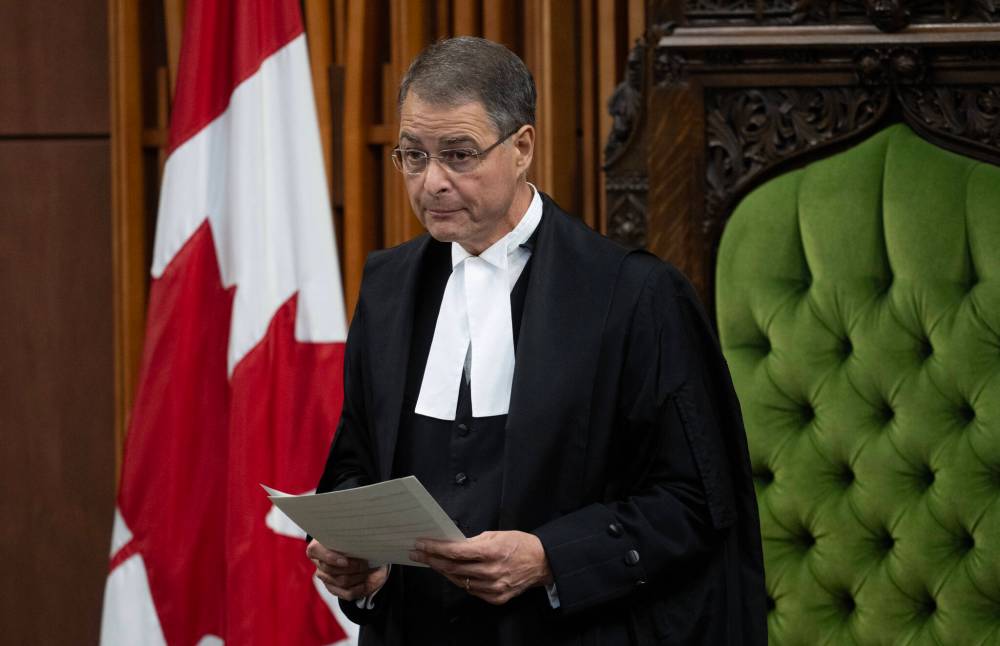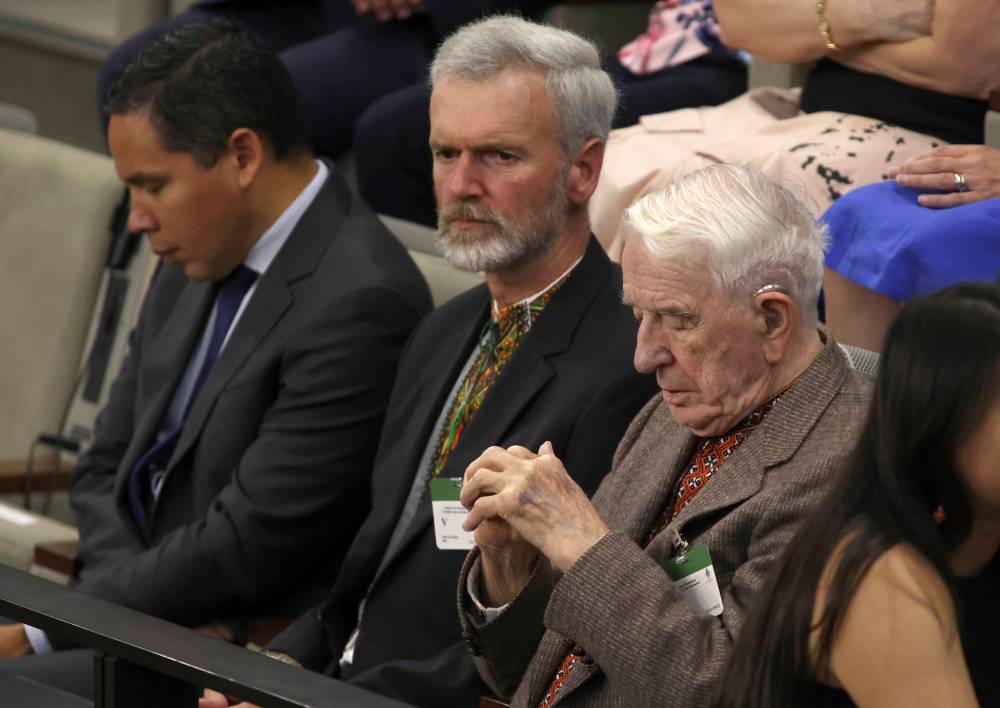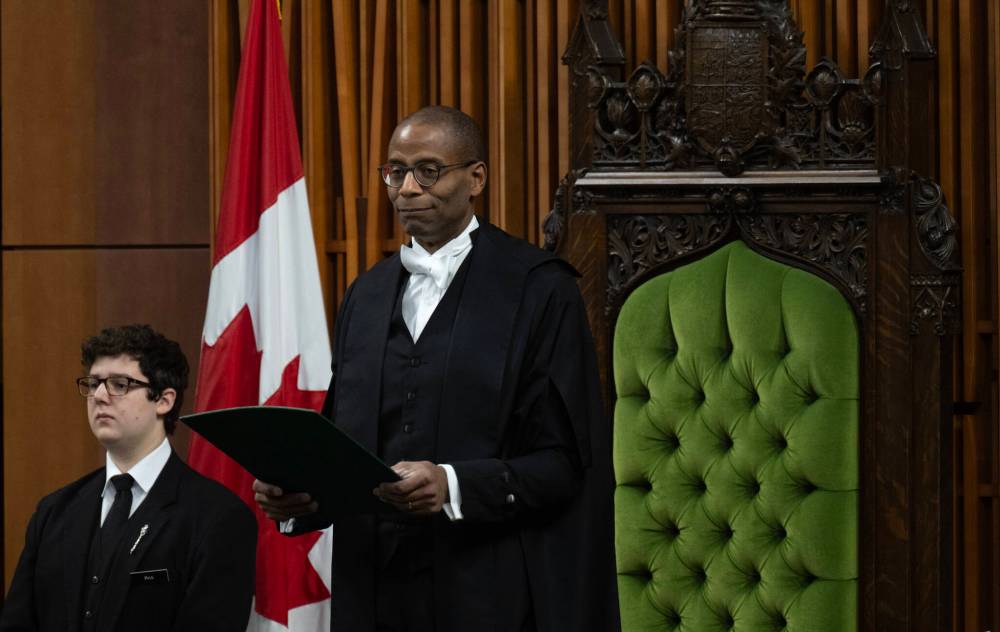Too little, too late
Federal government’s legacy of inaction allowed Nazi war criminals and collaborators to effectively run out the clock after emigrating to Canada
Advertisement
Read this article for free:
or
Already have an account? Log in here »
To continue reading, please subscribe:
Monthly Digital Subscription
$1 per week for 24 weeks*
- Enjoy unlimited reading on winnipegfreepress.com
- Read the E-Edition, our digital replica newspaper
- Access News Break, our award-winning app
- Play interactive puzzles
*Billed as $4.00 plus GST every four weeks. After 24 weeks, price increases to the regular rate of $19.95 plus GST every four weeks. Offer available to new and qualified returning subscribers only. Cancel any time.
Monthly Digital Subscription
$4.99/week*
- Enjoy unlimited reading on winnipegfreepress.com
- Read the E-Edition, our digital replica newspaper
- Access News Break, our award-winning app
- Play interactive puzzles
*Billed as $19.95 plus GST every four weeks. Cancel any time.
To continue reading, please subscribe:
Add Free Press access to your Brandon Sun subscription for only an additional
$1 for the first 4 weeks*
*Your next subscription payment will increase by $1.00 and you will be charged $16.99 plus GST for four weeks. After four weeks, your payment will increase to $23.99 plus GST every four weeks.
Read unlimited articles for free today:
or
Already have an account? Log in here »
Hey there, time traveller!
This article was published 17/02/2024 (747 days ago), so information in it may no longer be current.
Greg Fergus, who has been Speaker of the House of Commons since early October, is recommending that in the future the backgrounds of invited guests to the House who are introduced to Members of Parliament be thoroughly vetted. Not only whether they pose a physical threat, which is the current practice, but also if there is anything in their pasts that might be considered controversial.
Fergus’s recommendation is in response to what transpired last September when Ukrainian President Volodymyr Zelenskyy delivered an address to the House of Commons. One of the many guests invited to this special occasion by Fergus’s predecessor Anthony Rota was 98-year-old Ukrainian-Canadian Yaroslav Hunka, who lives in Rota’s Ontario riding. Introduced to the MPs by Rota, Hunka was given a standing ovation for having served in the First Ukrainian Division during the Second World War. A few days later, it was revealed that Hunka’s unit was, in reality, part of the 14th Waffen Grenadier Division of the SS, the military wing of the German Nazi party. In the aftermath of this debacle, Rota resigned as speaker and Prime Minister Justin Trudeau was compelled to give one of his heartfelt apologies.
The Globe and Mail recently reported that a staffer in Trudeau’s office had also invited Hunka to a Toronto reception for Zelenskyy. Though Hunka did not attend the reception and Trudeau had nothing to do with the recognition of Hunka in the House of Commons or the invitation, the entire episode was another reminder of Canada’s shameful dealings with former Nazis.

Adrian Wyld / The Canadian Press
Anthony Rota resigned as speaker after inviting ex-Nazi soldier to the House.
After the war, Hunka had relocated to the United Kingdom. In 1954, he emigrated to Toronto with his wife, Margaret. As was the practice of the day, his past connection with the Nazis was not flagged by U.K. or Canadian immigration officials. And even if they had known about it, they almost certainly would not have done anything about it.
An estimated 2,000 Nazi war criminals — the actual number is disputed — fled to Canada after 1945 (another 10,000, perhaps more — including 1,600 specifically recruited German scientists — ended up in the United States). Many were able to enter Canada with relative ease due to several factors: there was an inadequate screening process; a minority of former Nazis were assisted by western intelligence agencies like the CIA, which considered them valuable assets in fighting the Soviet Union during the Cold War; and probably most importantly, once the war had ended and following the trials of top Nazi leaders at Nuremberg in 1946, the British had quietly decided that to continue pursuing ex-Nazis was counterproductive to establishing positive relations with West Germany. Successive Canadian federal governments adhered to that line of thinking.
Jewish community leaders, who continually lobbied the government to take action against these prospective immigrants, whom they rightly regarded as war criminals, had no knowledge of this directive and would not until it was referenced more than three decades later in an official inquiry headed by Quebec judge Jules Deschênes to investigate how many war criminals were in Canada. As Ben Kayfetz, the Canadian Jewish Congress’s National Director of Community Relations from 1947 to 1985 (who died in 2002), said in a 1995 interview, “We were politely received, but we didn’t know then that the government lied to us. (It) was very sympathetic, but action was taken or could be taken. (The unspoken policy) was ‘no action.’ It was political conceit.”
Once they were in Canada, many of the former Nazis assumed new identities. Or others like Imre Finta, who was later tried but acquitted for his role in rounding up Hungarian Jews for deportation to Auschwitz (he used the “I was only following orders” defence), lived openly in Canada. Starting in 1949, the Canadian Jewish Congress (CJC) regularly sent names of suspected Nazis to justice officials in Ottawa, such as Antanas Kenstavicius, a Lithuanian police chief and SS collaborator who came to Canada in 1948 and settled in Hope, B.C. But nothing was done with his information. It took until 1997 for Canadian authorities to begin deportation proceedings against Kenstavicius, then 90 years old. He died the day the hearings into his wartime activity began.
Helmut Albert Rauca, on the other hand, a master sergeant and member of an Einsatzgruppe unit, a Nazi death squad, who was personally responsible for the murder of more than 10,000 Jews in Kaunas (Kovno), Lithuania, arrived in Canada in 1950. He merely switched his name to Albert Helmut Rauca to avoid detection. He worked as a businessman and became a Canadian citizen and by all accounts had a happy life. It took until 1982 for the West German government to track him down and issue an extradition order, a case in which Canada complied. Before his trial in West Germany could be completed, he died of cancer.
Into the 1960s and 1970s, CJC officials were preoccupied with lobbying the federal government to support Israel and rescue Soviet Jews, and the issue of war criminals was not given priority. Even when presented with names of Nazis or Eastern European collaborators, Pierre Trudeau, for example, who served as the minister of justice from 1967 to 1968 in Lester Pearson’s government, before he became prime minister following Pearson’s retirement in the spring of 1968, did not want to stir up bad feelings in ethnic communities whose votes the Liberals wanted. And as prime minister, he and his government did not want “to exacerbate relationships” between Jews and these communities, according to the late historian Irving Abella, who related his conversation with Trudeau on this subject in a 1997 interview with Mike Wallace on the CBS show, 60 Minutes.
Owing to recently declassified pages in a comprehensive survey of war criminals in Canada prepared by historian Alti Rodal for the Deschênes inquiry appointed by Brian Mulroney’s government in 1985, we now know more fully about Pierre Trudeau’s thinking on this issue and his decision not to take any concrete action. Deschênes’s report was released in March 1987. He had recommended Rodal’s complete 617-page study be available to the public, but due to concerns about privacy and typical federal government bureaucratic foot-dragging, it has taken nearly 40 years for this to happen.

Patrick Doyle / The Canadian Press
MPs gave Yaroslav Hunka (right) an ovation but later learned his war history.
Deschênes’s report detailed the wilful blindness of federal politicians who ignored the fact that some likely Nazi war criminals had lived comfortably in Canada and were still doing so in 1987. At the time, Deschênes identified 883 alleged war criminals. At least 86 had died in Canada, four could not be located and there was insufficient evidence about 154 of those listed. The report made non-Jewish Eastern European politicians and leaders nervous, given that Ukrainians, Lithuanians, Poles and others were potentially among the alleged war criminals and Nazi collaborators noted.
Among the alleged criminals according to Rodal’s research was an individual she only identified as “subject F.” This person (who died in Toronto in 1983) was a naturalized Canadian of Latvian descent who had come to Canada after the war. In 1965, as Rodal noted, subject F had been convicted in absentia by a court in Riga, Lativa, then under the control of the Soviet Union, “as the captain of a firing squad that murdered 5,128 Jews” in Lativa during the war. The Soviet-Latvian court sentenced him to death and the Soviets sent an extradition request to Canada to send him back to Europe. More than a year later, it was decided that Canada would not honour the extradition request. The CJC, which learned about subject F, then pressed the government to revoke subject F’s Canadian citizenship since under the Citizenship Act, citizenship could be revoked if a person “obtained a certificate of naturalization and of Canadian citizenship by false representation or fraud.”
Eventually Pierre Trudeau, who was then justice minister, was asked for his opinion. Then and later, he urged caution in dealing with this. He argued that “it could not be established that subject F knowingly concealed material even if it be assumed he was, in fact, guilty of the crimes for which he was convicted in absentia.” A few months later in response for further review, he added that there was nothing in the application for Canadian citizenship “in the nature of a confessional requiring the applicant to disclose all prior conduct… The applicant’s obligation is to satisfy the Court that he is of good character. He is not required to satisfy the Court that he, at no time in his past, committed an opprobrious act.”
Rodal added in her commentary that she found Trudeau’s logic “highly abstract and contrived” considering this matter concerned subject F’s possible involvement in “many killings.”
Trudeau noted that while he appreciated “the repercussions and anxiety” of the “Jewish community and others concerned about the problem of inaction, it appears to me… that it would be ill-advised for the government to undertake this venture which would involve publicly accusing a Canadian citizen of having committed crimes in Latvia in respect of which he has been convicted, in absentia, in Russia.”
Mulroney and his Progressive Conservatives were praised for taking the initiative when past (Liberal) governments would not. In June 1987, the Mulroney government passed war crime legislation “that allowed for the prosecution of foreign war crimes in Canadian courts and the deportation of naturalized war criminals.” Then, in 2000, the Crimes Against Humanity and War Crimes Act was passed by Jean Chrétien’s Liberal government, replacing the 1987 act.

Adrian Wyld / The Canadian Press
Speaker Greg Fergus is calling for more strigent background checks on guests of the House of Commons.
Still, it was all a little too late. The Conservatives balked at establishing a special investigation unit within the Department of Justice, similar to the Office of Special Investigations in the United States whose sole function was to identify and prosecute war criminals. The result was that from 1987 to 1992, only 26 cases were investigated and examined by Canadian justice officials and only four were proceeded with. Moreover, any alleged war criminals were old men: A 25-year-old Nazi or collaborator who murdered Jews or herded them into ghettos and cattle cars in 1942-44 was at least 75 years old in 1992.
As David Matas, senior legal counsel of B’nai Brith Canada, observed in June 2014: “Canada started too late; there were just too many perpetrators; too much evidence had been destroyed or lost. The effort was more an attempt to construct a justice legacy for the victims of the Holocaust.”
Historian Allan Levine is the author of Seeking the Fabled City: The Canadian Jewish Experience from which this article is partly adapted.









